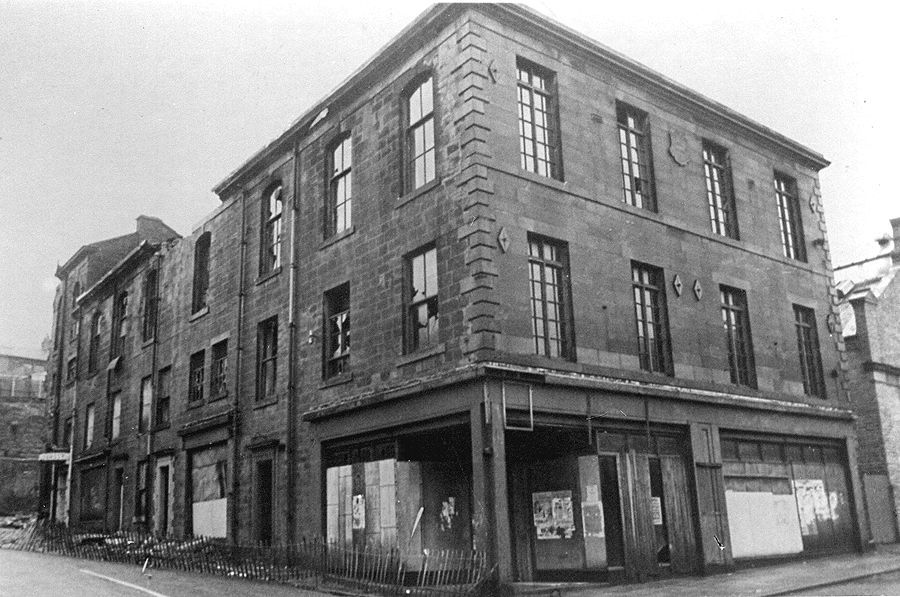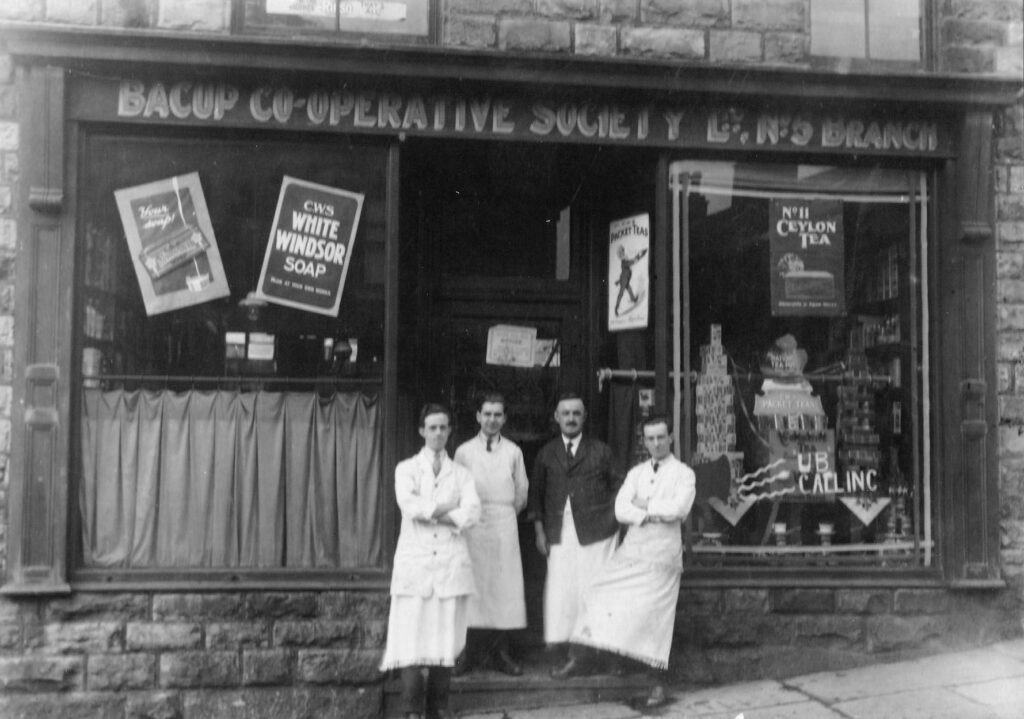In 1876, the Bacup district was expanded to encompass Stacksteads, which was initially referred to as Stacksteads Ward until 1888 when it was renamed Tunstead Ward. Stacksteads, along with neighbouring villages like Weir, Sharneyford, and Britannia, were considered distinct villages with their own identities. Each village boasted its own Co-op store as well as other shops catering to the diverse requirements of the community.
The Bacup Co-operative was established by a group of fourteen individuals who came together to enhance their writing, reading, and math abilities. They rented a room for a weekly fee of fifteen pence. Each member contributed six shillings to the collective fund, which they used to buy coffee at a discounted rate from a merchant in Todmorden. They then divided the coffee equally among themselves and expanded their purchases to include other essential household items like tea, sugar, and soap.
To transport the goods from Todmorden to Bacup, they utilized a cart from the corn mill and borrowed scales from a friend to ensure accurate measurements. This initiative allowed the group to save money by purchasing goods in bulk and sharing the costs among themselves. Founded on the principles of cooperation and mutual benefit, the Co-op movement experienced rapid growth following its initial success. The need for larger premises became apparent, leading to the construction of a new main store on Rochdale Road in April 1863. As more individuals embraced the cooperative philosophy, the number of Co-op stores being opened also increased, further solidifying the movement’s impact and reach within the community. In the mid to late 19th century, a series of retail stores were established in various locations.
The first additional store known as, No.1, opened in Weir in 1865, followed by the opening of No.2 in Britannia Village in 1866. The expansion continued with the opening of No.3 in Lee Mill in 1867 and No.4 in Change in 1868. Nine years later, in 1877, the Market Street store, No.6, began operations, followed shortly by the Vale Street store, No.7. The Underbank store, also known as the No.5 branch, joined the retail network in 1878.
The Rochdale Road store’s library and entertainment hall provided a unique and memorable setting for various events and functions. Fondly remembered by many, it was not just a place to shop but also a social hub where lasting connections were made. The Embassy Ballroom opened on October 4, 1949, and the Tender Trap, which opened on February 28, 1964, became iconic venues within the store where people met their future partners while dancing the night away.
The transition from horse-drawn vehicles to motor vehicles marked a significant shift in operations for the Co-op in 1955, coinciding with the discontinuation of bread baking. By 1970, the Co-op building was left vacant, eventually succumbing to disrepair. Despite attempts to repurpose the building into a leisure centre and squash court, these plans were unsuccessful. The once-thriving establishment became a target for rats according to nearby residents, and a fire in 1976 exacerbated the damage inflicted upon the structure.
In April 1977, the Council issued a notice to the owners of the building, directing them to make improvements or face demolition. Just four months later, on August 6th, the Rossendale Free Press reported that demolition had commenced on the structure that had once been known as the “pride of the town.” It was a swift and dramatic turn of events for a building that had held such significance within the community.

